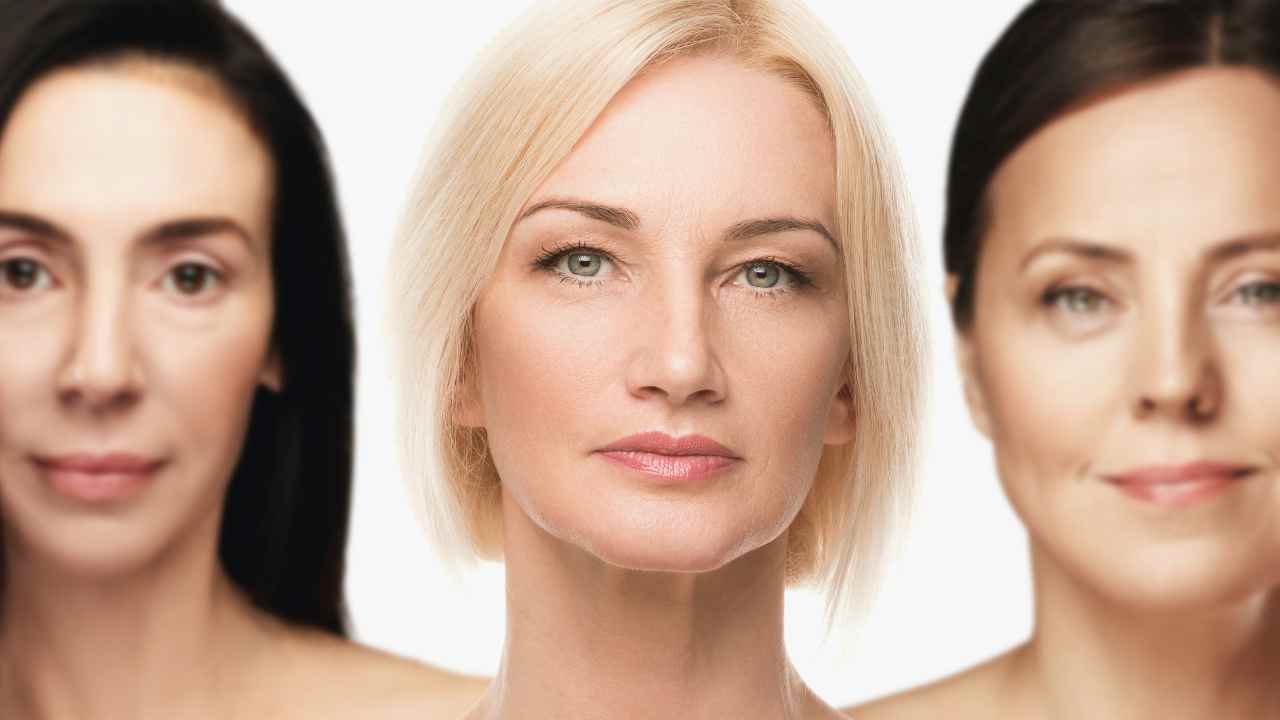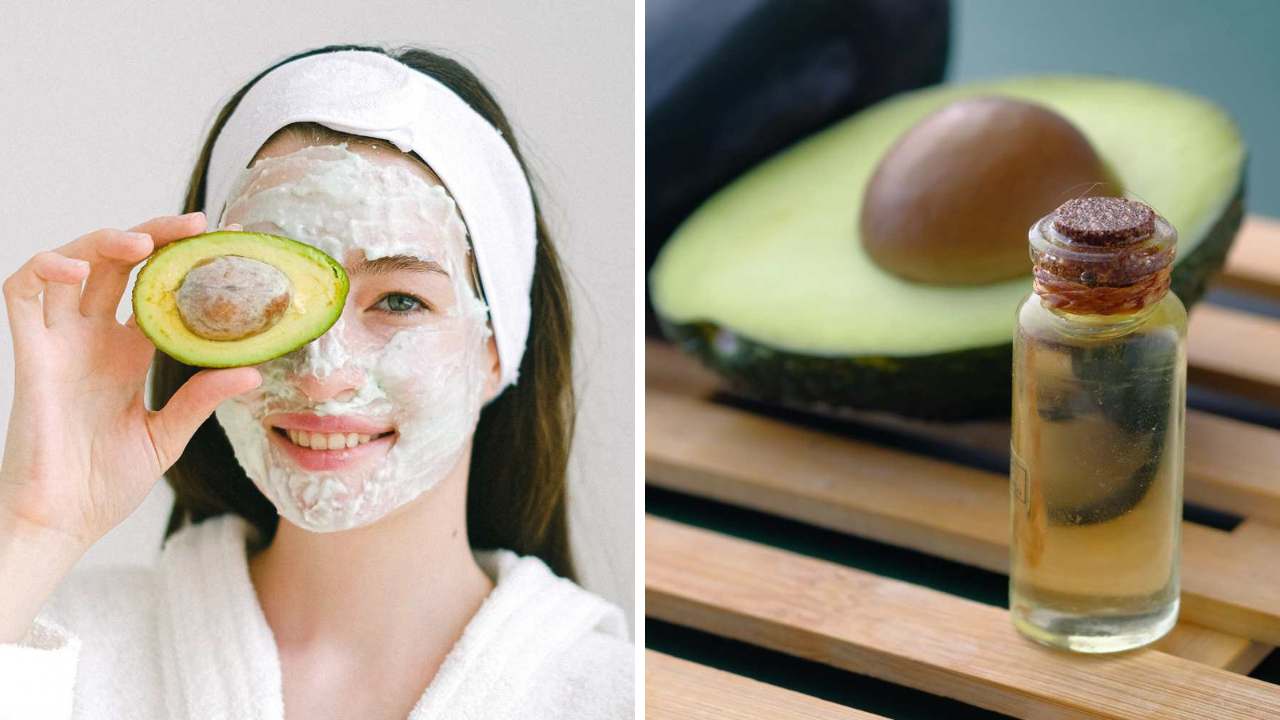
Does Avocado Oil Clog Pores? Here's What You Need to Know!
If you've been keeping up with the beauty trends, you know that avocado oil is having a major moment in skin care.
Avocado oil is popping up in face oils, moisturizers, and even shampoos — which begs the question: does it clog pores?
Before slathering your face in avocado oil, read on for all the details about this amazing and popular ingredient.
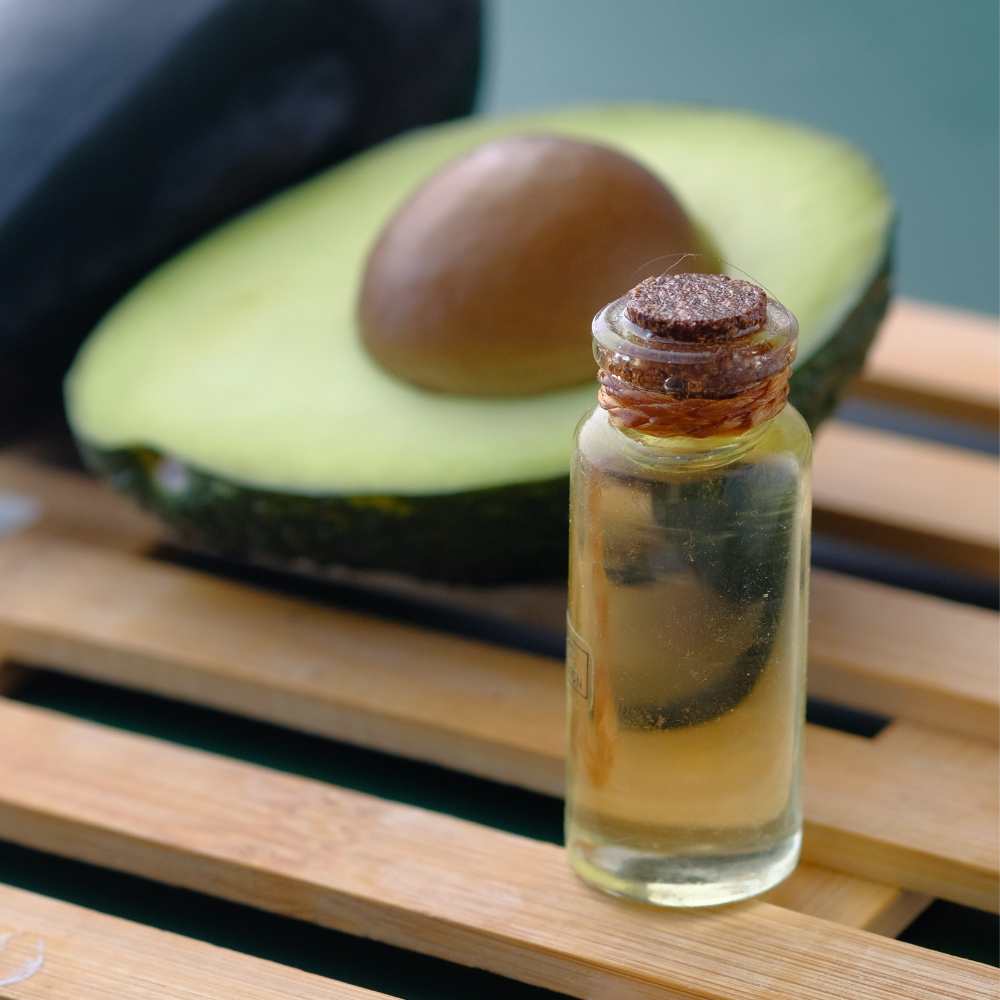
What Is Avocado Oil?
Avocado oil is derived from the pulp of the avocado fruit. It's an edible oil that has been used for centuries as a natural remedy for various skin ailments.
It's rich in antioxidants and fatty acids like Omega-3s that help nourish skin cells.
These nutrients also provide anti-inflammatory benefits and are known to reduce redness and irritation.
Is Avocado Oil Comedogenic?
The comedogenic rating scale was created by dermatologists to measure how likely it is that a particular ingredient will clog pores.
Many factors affect this rating, including molecular size and the amount of fatty acids present in an ingredient.
On a scale of 0-5 (with 5 being the most pore-clogging), avocado oil rates between 0-2 depending on who you ask - making it generally non-comedogenic. This means you don't have to worry about avocado oil clogging your pores!
The Benefits of Avocado Oil for Skin
Now that we’ve established that avocado oil won’t clog your pores, it’s time to talk about its many benefits!
Thanks to its fatty acid content, avocado oil helps keep skin hydrated while maintaining natural oils so your complexion looks healthy and balanced rather than greasy or dry.
It’s also packed with vitamins A, D and E which help protect skin against environmental damage caused by free radicals like UV rays and pollution.
Plus, its anti-inflammatory properties can help soothe redness and irritation caused by acne breakouts or sunburns.
And if all those reasons weren't enough to convince you to give avocado oil a try, we have one more - it smells amazing! Especially, if it's mixed with fragrant essential oils.
Is Avocado Good for Acne Prone Skin?
Avocado can be good for acne-prone skin due to its high content of vitamins and antioxidants, which can help nourish and hydrate the skin.
It also contains linoleic acid, which has been shown to help reduce inflammation in the skin.
However, if you have oily skin or acne prone skin, it's important to use avocado in moderation as it is a rich oil that can potentially cause even oilier skin.
As with any new skincare ingredient, it's always best to patch test first and consult with a dermatologist or skincare professional before incorporating it into your routine.
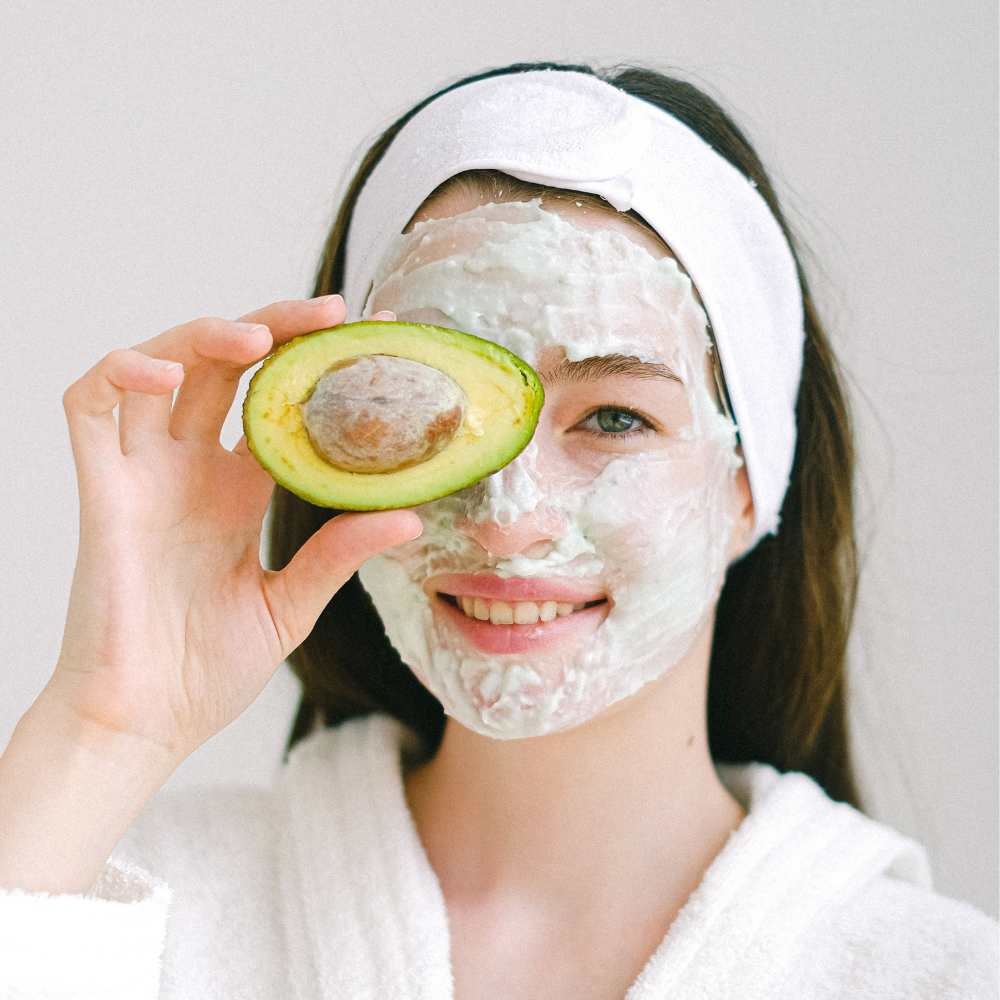
Is Avocado Oil Good for Wrinkles?
In short, yes! Avocado oil is gaining traction as a natural remedy for wrinkles.
It is an extremely nourishing and hydrating oil that can reduce the appearance of fine lines and wrinkles, especially when used in combination with other natural ingredients.
The fatty acids found in avocado oil can help to boost collagen production, resulting in firmer skin that looks more youthful.
Additionally, avocado oil contains vitamin E which helps to protect your skin from environmental toxins, which can contribute to premature aging.
Furthermore, it’s full of antioxidants, omega-3 fatty acids and minerals like potassium and zinc; all of these are essential for maintaining healthy soft skin!
So if you’re looking to fight wrinkles without going under the knife or using harsh chemicals – look no further than avocado oil!
Does Avocado Oil Help with Under Eye Bags?
Absolutely! Avocado oil is loaded with several beneficial skincare properties that can help combat under eye bags.
The high content of fatty acids, antioxidants and vitamins A, D, and E make avocado oil an ideal remedy for reducing puffiness around the eyes.
Drinking plenty of water and getting adequate sleep should remain your first line of defense against under eye bags.
But if you’re still finding those pesky bags beneath your eyes even after doing all these things, then it’s time to turn to avocado oil as a natural solution to this beauty problem.
Avocado oil contains mono-unsaturated fats that help reduce inflammation in the body—including inflammation from dark circles around the eyes—and its richness in vitamin C helps boost collagen production for healthy skin elasticity.
Vitamin E is also present which helps moisturize dry skin and fight off free radicals which can age skin prematurely by damaging cells at a faster rate than normal.
To use avocado oil for under eye bags: Start with a clean face so you don't trap dirt or bacteria near your delicate eye area.
Place one drop on your index finger along with some gentle pressure applied below each eye socket; massage lightly until absorbed into the skin before going on with your regular skincare routine (serums, creams etc).
It’s recommended that you do this twice daily- once when you wake up in the morning, then again right before bedtime -over extended periods of time to get desired results.
Does Avocado Oil Boost Collagen?
Yes, studies have shown that avocado oil can help boost collagen production. The reason for this is due to its high vitamin E content, which has been found to increase synthesis of collagen in the skin.
Avocado oil is also rich in other vitamins and minerals such as copper, iron, magnesium and potassium which are all essential for healthy skin.
Copper helps form new collagen molecules while iron improves circulation allowing vital nutrients to reach the areas that need them most.
Magnesium has anti-inflammatory properties which reduce inflammation within the dermal layers of your skin making it less likely to break down existing collagen molecules; while potassium increases water retention in the epidermis layer helping improve elasticity and firmness over time.
For those looking to get some extra oomph out of their skincare routine, you can use avocado oil along with retinol and vitamin C products on a regular basis as they work synergistically together creating an effective trio with proven results.
Retinol is a potent antioxidant promoting cell turnover while vitamin C reduces oxidative damage preventing harmful free radicals from forming!
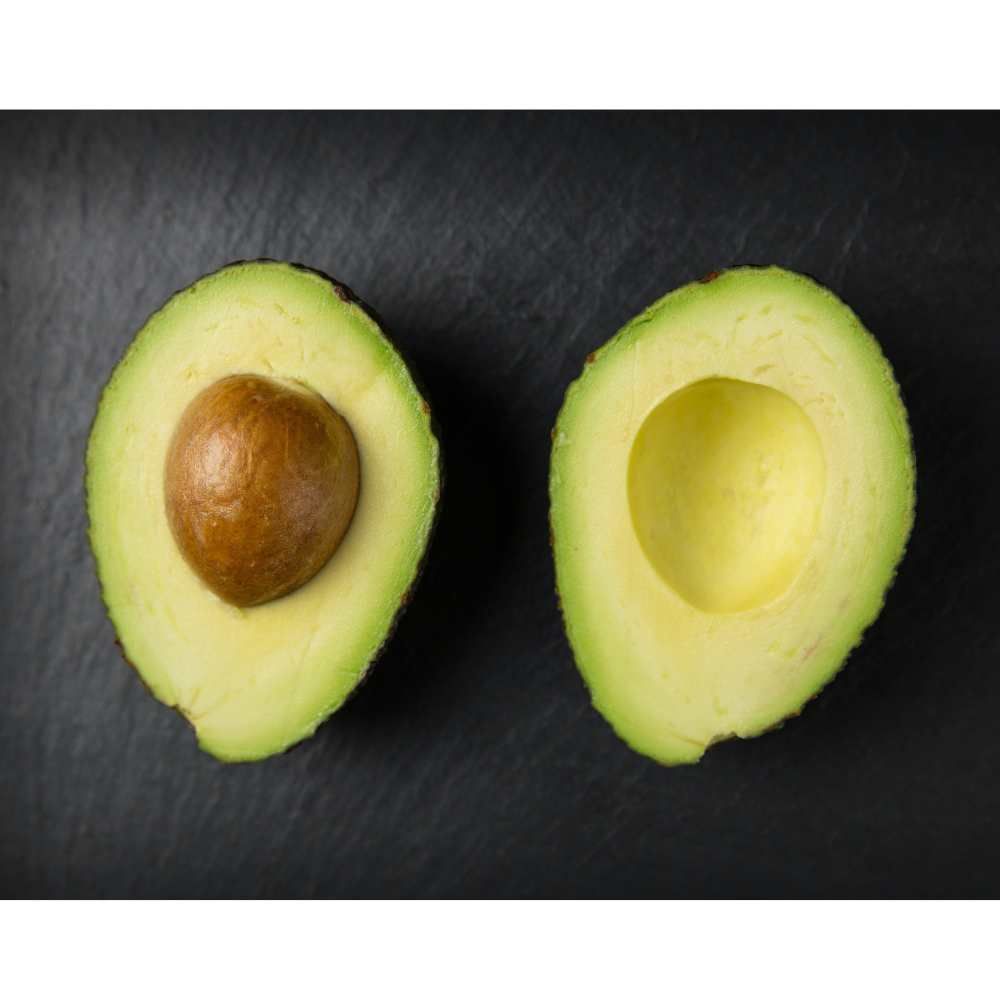
Does Avocado Oil Tighten Loose Skin?
While it's true that avocado oil can treat wrinkles and lines and help to improve the appearance of aged skin, there's no scientific evidence available to suggest that it will actually "tighten" the skin.
Avocado oil contains sterolin which helps protect your skin from sun damage by blocking out harmful UV rays.
So while there’s no definitive proof that this magical fruit-derived ingredient will literally “tighten” your skin collagen fibers - you can rest assured that applying a daily dose of this elixir won't go amiss!
Which is Better for Skin Avocado Oil or Coconut Oil?
Both avocado oil and coconut oil can be beneficial for the skin, but they have different properties that make them better suited for certain skin types and concerns.
Avocado oil is rich in fatty acids, antioxidants, and vitamins A, D, and E. It has a thicker consistency than coconut oil, making it more hydrating and nourishing for dry or mature skin. Avocado oil also contains lutein, which can help protect the skin from UV damage.
Coconut oil is lighter in texture than avocado oil and has antimicrobial properties that can help fight bacteria on the skin. This makes it a good option for acne-prone or oily skin.
However, coconut oil can also be comedogenic (pore-clogging) for some people.
Ultimately, whether avocado oil or coconut oil is better for your skin depends on your individual needs and preferences.
It's always best to patch test first and consult with a dermatologist or skincare professional before incorporating any new product into your routine.
Which Oil is Best Absorbed into the Skin?
Jojoba oil is considered one of the best oils for being absorbed into the skin. This is because jojoba oil has a structure similar to that of the natural oils produced by our skin, called sebum.
As a result, it is easily absorbed and can help regulate the production of sebum in the skin.
Other oils that are also easily absorbed into the skin include argan oil, squalane oil, and grapeseed oil. These oils are lightweight and non-greasy, making them ideal for all skin types, including oily or acne-prone skin.
It's important to note that everyone's skin is different and may react differently to various oils. It's always best to patch test first and consult with a dermatologist or skincare professional before incorporating any new product into your routine.
Which Oil is Best for Face Anti-Aging?
Rosehip oil is considered one of the best oils for anti-aging benefits.
It is rich in antioxidants, vitamins A and C, and essential fatty acids that can help improve skin texture, reduce fine lines and wrinkles, and promote collagen production. Rosehip oil is also lightweight and easily absorbed into the skin.
Another oil that has anti-aging properties is argan oil. It is rich in vitamin E and other antioxidants that can help protect the skin from free radical damage, which can contribute to premature aging.
Argan oil also contains essential fatty acids that can help hydrate and nourish the skin.
It's important to note that while these oils may have anti-aging benefits, they should be used as part of a comprehensive skincare routine that includes sunscreen, gentle cleansing, and regular exfoliation.
It's always best to patch test first and consult with a dermatologist or skincare professional before incorporating any new product into your routine.
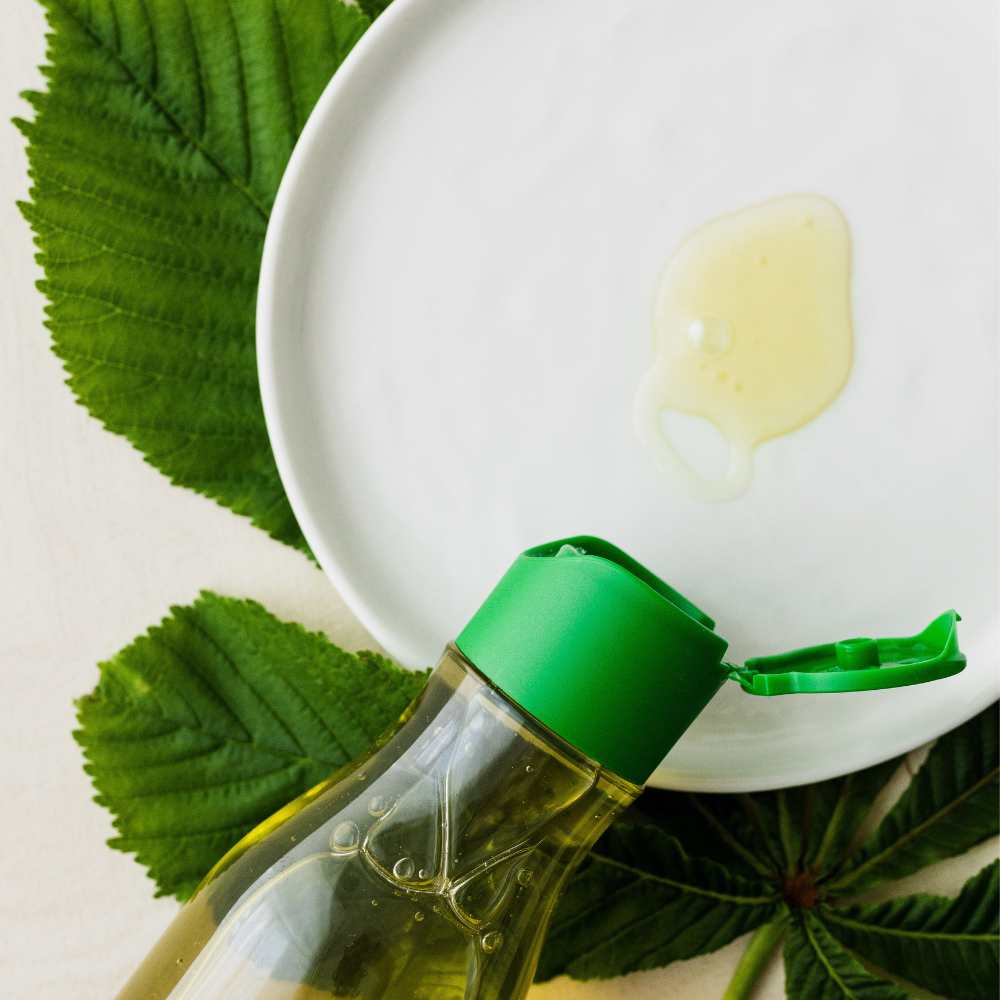
What are the Side Effects of Avocado Oil?
Avocado oil is generally considered safe for most people when used topically. However, like any other product, it can cause side effects in some individuals.
Some possible side effects of avocado oil include:
- Allergic reactions: Some people may be allergic to avocados or avocado oil. Allergic reactions can cause symptoms such as itching, swelling, hives, and difficulty breathing.
- Skin irritation: Avocado oil is a rich source of oleic acid, which can sometimes irritate the skin and cause redness, itching and flaking of dead skin cells.
- Acne breakouts: Again, avocado oil is high in oleic acid, which has the possibility to clog pores and contribute to acne breakouts in a small group of people.
It's always a good idea to patch test first before using avocado oil on your face or body.
If you experience any adverse reactions or have any concerns about using avocado oil, it's best to consult with a dermatologist or healthcare provider.
Should Avocado Oil Be Refrigerated?
Avocado oil does not need to be refrigerated but it should be stored properly in a cool, dry place away from direct sunlight. Exposure to heat and light can cause the oil to go rancid more quickly.
If you plan on storing avocado oil for an extended period of time, it's best to keep it in the refrigerator. This will help extend its shelf life and prevent it from going bad too quickly.
It's important to note that if you do refrigerate avocado oil, it may become cloudy or solidify. This is normal and does not affect the quality of the oil. Simply allow the oil to come back to room temperature before using it.
Who Should Avoid Avocado Oil?
Anyone who is sensitive or allergic to latex may also need to avoid avocado oil, as avocados contain a substance that can cross-react with latex and cause an allergic reaction.
As always, if you have any concerns about using avocado oil or any other product on your sensitive skin or in your diet, it's best to consult with a healthcare provider.
Does Avocado Oil Cause Hair Growth?
There is some evidence to suggest that avocado oil may help promote hair growth. Avocado oil contains vitamins, minerals, and fatty acids that can nourish and strengthen hair follicles, potentially leading to healthier hair growth.
One study found that a combination of avocado oil and jojoba oil was effective at promoting hair growth in mice.
While more research is needed to determine whether these findings translate to humans, many people have reported positive results from using avocado oil on their hair.
Avocado oil can be used as a deep conditioner or hot oil treatment to nourish and moisturize the scalp and hair. It can also be used as a styling product to add shine and tame frizz.
Overall, while there is no guarantee that avocado oil will cause hair growth for everyone, it does have properties that make it a promising natural remedy for promoting healthy hair.
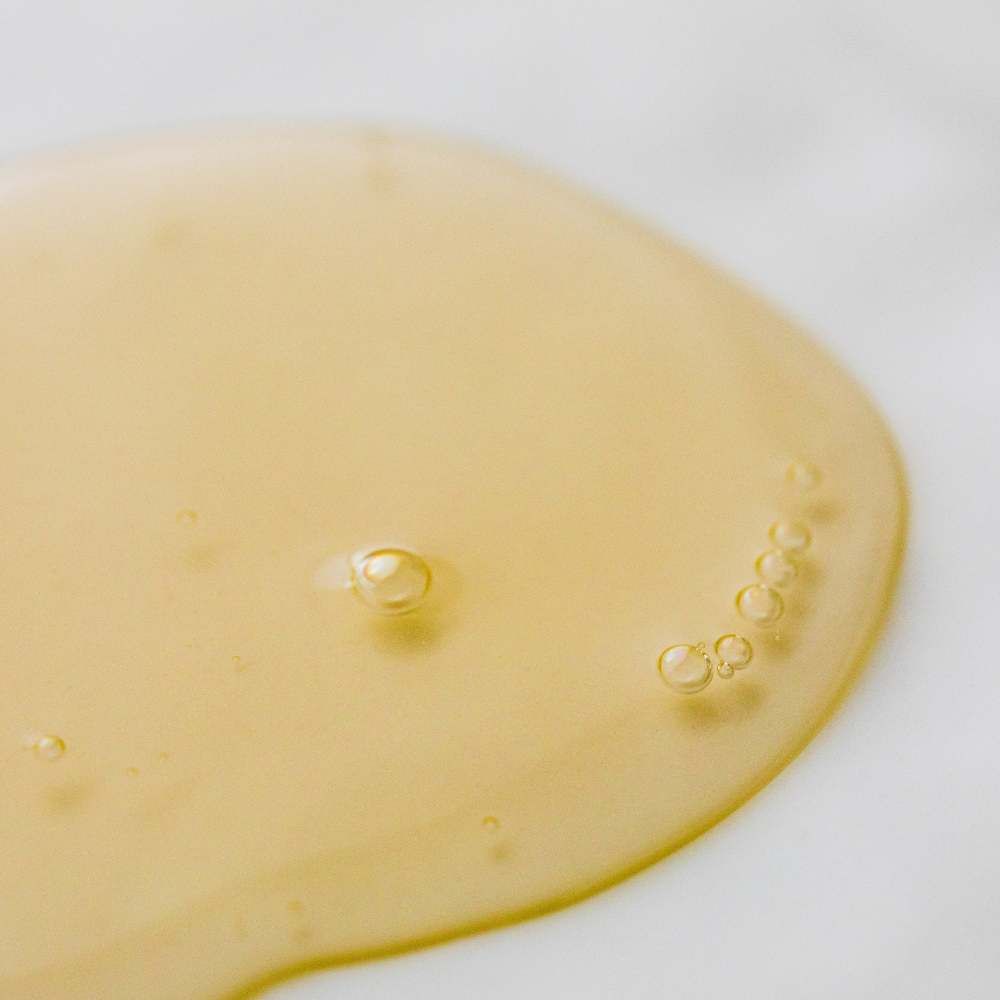
Does Avocado Oil Clog Your Pores? Most Likely Not!
Avocado oil is quickly becoming one of the most popular ingredients in skin care products thanks to its unique nutrient profile and moderate level of comedogenicity (pore clogging).
There are other carrier oils with a lower comedogenic rating that are potentially less pore clogging if you are concerned. They include rosehip oil, olive oil, squalane oil, almond oil and jojoba oil, with olive oil and almnd oil having the highest comedogenic ratings.
But, there are also other facial oils with an even higher comedogenic rating which you might want to avoid on your face, such as cocoa butter.
But, avocado oil's hydrating properties help maintain your oils while providing antioxidant protection against environmental damage like UV rays or pollutants.
Plus, it smells great too! So go ahead - reach for that bottle of avocado oil next time you need some TLC for your skin!
With all these benefits, there's no reason not to give it a try! If you're concerned about clogged pores, use a good pore cleanser before lubing up with oil.
















